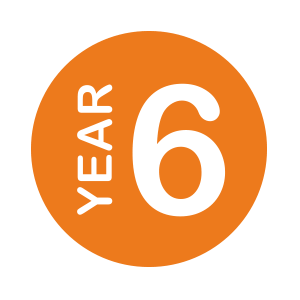Curriculum
Year Group Pages
Curriculum Pages
Maths English Phonics Science
Geography History PSHE Computing
PE Art & Design RE Languages
DT Music
At Kempshott Junior School, we offer a curriculum that is rich, relevant and contextual. It is knowledge based and responds to the needs of our pupils. It engages them in their learning through exciting, well planned and resourced lessons, which create a thirst for learning, as well as opportunities for satisfying that thirst.
Our curriculum is also skills based. This means that we teach and develop the learning behaviours and life skills, and that they are at least as important as traditional subject knowledge. Pupils need a solid grasp of English, Maths and ICT skills, and they need to be able to apply these skills in various different contexts.
Importantly, all of our activities at school are underpinned by a high-level of challenge and rigour. This ensures that our pupils are constantly learning, being pushed, and reaching their potential. We feel strongly that higher order thinking, questioning and tasks stretch and challenge our pupils, whatever their ability.
Intent
- That each child will be encouraged and given the opportunity to achieve their full potential in all areas of the curriculum.
- To support all children to reach a high standard in English and Mathematics through specific teaching and application of knowledge and key skills in learning across the curriculum.
- To create and explore knowledge, skills and experiences that give purpose to writing.
- To provide full subject coverage through clear sequence of study, knowledge acquisition and progression.
- To provide experiences that are challenging and stimulating that take place in an atmosphere of success and achievement.
- That each child will have access to a broad and balanced curriculum where children enjoy learning and develop their knowledge of skills through memorable lessons and themes.
- Each child will be encouraged to be independent in their learning and manage time, space and resources effectively.
- That children should present themselves and their work to the highest standards which will develop a sense of pride in their achievements and a commitment to learning.
- That children should be prepared to be members of the community where empathy and co-operation are valued.
- To develop each child’s self-esteem and thereby improve confidence in themselves and their ability.
- That children’s learning should take place in a calm, secure and welcoming environment where each child is a valued member of the school community and here tolerance and justice prevail.
Implementation
- Teachers have good knowledge of the subjects they teach and subject leaders provide colleagues with effective support for planning, resourcing and teaching.
- Lessons are presented clearly with opportunities for discussion to extend thinking, check understanding, identify misconceptions and provide clear and direct feedback both verbal and through marking.
- Teaching and learning is balanced and inclusive, encouraging independent thinking and support where needed.
- High quality texts are used in all year groups to promote reading skills and to use a high level of vocabulary and extended sentence structures. Reading is promoted within this skill with a focus on confidence and enjoyment.
- The school adopts a 'rich tasks' approach where number skills and knowledge are consolidated and reasoning skills are used in problem solving.
- Teachers use assessment effectively to check understanding and inform teaching so that knowledge is gained and used. Pupil progress review meetings are held every half term to discuss the progress of every child and to put in interventions as required.
- The curriculum is delivered in various ways to capture interest and imagination but the steps of learning within the subjects are carefully planned to ensure that knowledge and skills are gained for children to build on in future learning.
- Each child is regarded as an individual and an equal. Our inclusive curriculum consists of activities designed to develop the social, personal, intellectual and physical activities of the children.
- The quality of the children’s learning is enhanced across the curriculum through practical activities, educational visits linked to study work and the use of ICT. All work in the school is planned within the framework of the National Curriculum.
Impact – how we know we’ve achieved
- Children to be confident and successful learners. They think critically about their learning, are keen to learn and see purpose in their learning.
- Children to achieve well by developing knowledge and skills as they progress through the school. Their attainment and progress is above or at least in line with national expectations. Challenge is provided to enable some pupils to reach greater depth.
- The children leave the school in Year 6 with the confidence and skills ready for a successful transition to secondary school.
- The impact of the curriculum is evaluated through end of Year assessments and national standard assessment tests (SATs), through governor visits and meetings and through monitoring of teaching, learning and pupil voice.



















